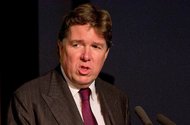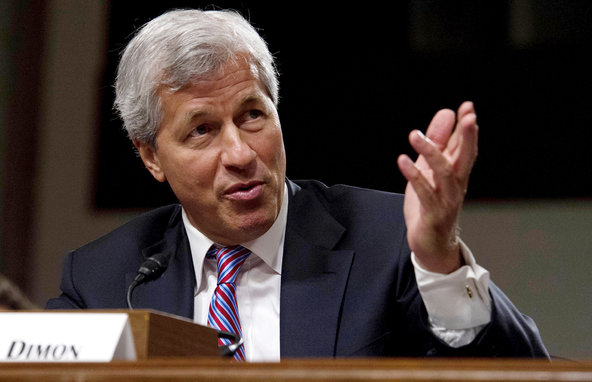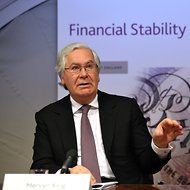 Neil Hall/ReutersPaul Tucker, deputy governor of the Bank of England.
Neil Hall/ReutersPaul Tucker, deputy governor of the Bank of England.
LONDON – The Bank of England said Friday that Paul Tucker would resign as deputy governor. The announcement comes two weeks before Mark Carney takes over as the governor of the central bank.
Mr. Tucker, who has spent 33 years at the Bank of England, was also a candidate for the top job at the central bank. Mr. Tucker said that he planned to stay through the summer to help Mr. Carney, the former governor of the Bank of Canada, settle in to his new role.
“It has been an extraordinary honor to serve at the Bank of England over the past 30 years,” Mr. Tucker said in a statement. “I am very proud that, through the bank and the wider central banking community, I have been able to make a contribution to monetary and financial stability. I am looking forward to supporting Mark Carney as he arrives at the bank.”
Mr. Tucker had been a leading candidate to replace Mervyn A. King as governor of the Bank of England. But his chances dimmed after questions arose after an interest rate manipulation scandal erupted last summer.
British politicians accused Mr. Tucker and the central bank of failing to crack down on efforts by Barclays and other banks to manipulate the London interbank offered rate, or Libor, a benchmark for mortgages, corporate loans and other financial products worldwide. Mr. Tucker had to defend himself against assertions by former Barclays executives that the Bank of England had been aware of attempts to influence rates.
Mr. Tucker joined the Bank of England in 1980 after studying mathematics at Cambridge University. He became executive director for markets in 2002 and a member of the Bank of England’s rate setting committee. Earlier this year, he took a seat at the newly created Financial Policy Committee, which is part of Britain’s financial regulation system. At the central bank, he is known for improving communication with large financial organizations and keeping closer ties with chief risk officers.
“Paul has contributed immeasurably to a series of critical financial reforms, including policies to end too big to fail and to build more resilient derivative and funding markets,” said Mr. Carney, who is due to take the top job at the Bank of England on July 1. He added that he would like to continue a “close dialogue on how to build a more resilient financial system that more effectively serves the needs of the real economy.”
In a letter to Mr. Tucker published on the Bank of England’s Web site, George Osborne, the chancellor of the Exchequer, wrote that he was grateful to Mr. Tucker for his service and “a tremendous contribution to U.K. monetary and financial policy.”
“I have no doubt that you will continue to make a towering contribution to the international economic community,” Mr. Osborne wrote. “I hope that we stay in touch.”
Article source: http://dealbook.nytimes.com/2013/06/14/bank-of-england-official-to-leave/?partner=rss&emc=rss

